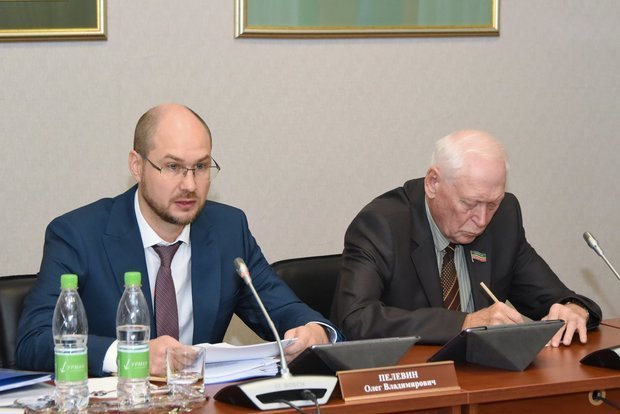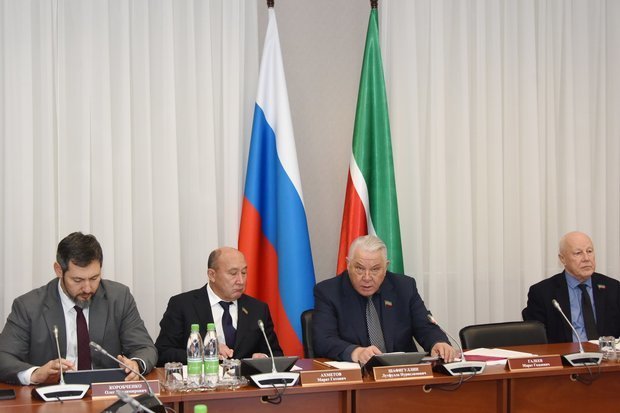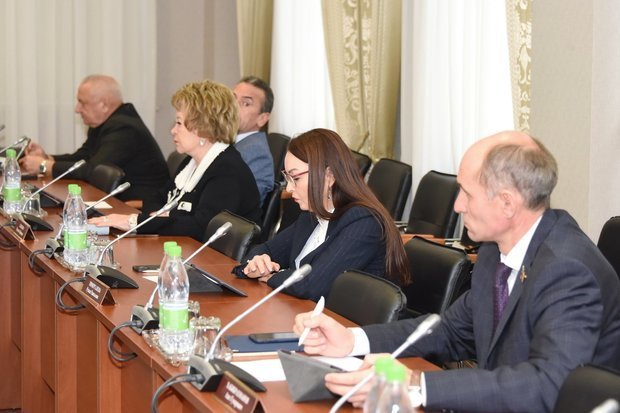Small businesses get 200 million of guarantee volume by Tatarstan Guarantee Fund

“What benefits and preferences should small businesses expect in 2023-2025?" the parliamentarians asked at the meeting of the Tatarstan State Council Committee on Economy, Investment and Entrepreneurship during the “run-in” of the draft budget for the next three years on 6 October. It turned out that the system of tax incentives for SMEs has not changed for more than 13 years. At least, Deputy Minister of Finance of the Republic of Tatarstan Alla Anfimova could not name new anti-crisis support measures, except for that the volume of guarantees of the Guarantee Fund has increased by 200 million rubles when issuing microloans to businesses. Read the details in the material of Realnoe Vremya.
“Budget equation” with two unknowns
The “run-in” of the draft consolidated budget of Tatarstan for 2023-2025 has begun in the parliamentary committees of the State Council of the Republic of Tatarstan. It was evaluated by the deputies of the Parliamentary Committee on Economy, Investment and Entrepreneurship through the prism of the interests of small and medium-sized businesses that morning. As one of the speakers noted, 804 thousand Tatarstan citizens, or 41% of the able-bodied population, are employed in the field of SMEs, so this area of the economy is no less a priority than industry.
Before the discussion, Deputy Minister of Economy of the Republic of Tatarstan Oleg Pelevin announced forecasts of socio-economic development of the republic for 2023-2025. He immediately warned that this year the forecast has been prepared “in conditions of high uncertainty of economic development” due to “geopolitical factors”. Indeed, for the first time in the post-Soviet era, the Ministry of Economy of the Republic of Tatarstan has not named either the forecasted value of the exchange rate or a barrel of oil. These two key values seem to have “dropped out” of the forecast. However, they remain uncertain at the federal level as well.
It is clear that, having two unknowns in the “budget equation”, it is uneasy to predict GRP in ruble terms. It is not surprising that the deputy minister of economy of the Republic of Tatarstan prudently avoided announcing the exact figures on the volume of the GRP of the Republic of Tatarstan for 2023-2025, having dispensed with relative values. As it followed from his speech, the Ministry of Economy predicts near-zero economic growth (100,8%) in 2023, and a rise of 103,2% is expected in 2024, 102,7% — in 2025. But is it worth aking use of them?

“Unprecedented sanctions have a significant limitation," stated Oleg Pelevin. “The restriction has affected all types of export-import operations, technological restrictions have affected the implementation of investment projects. Blocking the access of banks has led to significant difficulties in conducting settlement operations with foreign counterparties.
According to him, the sanctions pressure is going to increase in the form of secondary sanctions, there will be additional restrictions on exports from the list of sanctioned goods and technologies. “This significantly increases the uncertainty in the future," he repeated.
In response, a plan of priority measures to strengthen the economy has been adopted at the federal level. According to Oleg Pelevin, the backbone enterprises of the Republic of Tatarstan have received about 40 billion rubles of concessional loans to replenish working capital, and SMEs have been supported in the amount of 60 billion rubles.
Tatarstan will keep from economic downturn
Tangible concrete figures were heard only in relation to the forecast of the GRP of the Republic of Tatarstan for this year. According to the calculations of the Ministry of Economy, the Tatarstan economy will keep from falling. According to Oleg Pelevin, GRP is estimated at 3,7 trillion rubles, or 100,6%, by the end of 2022. This is ensured by maintaining the pace of industrial production, which is estimated at 3,4 trillion rubles by the end of the year.
“This is an understated conservative forecast," Oleg Korobchenko, the deputy prime minister of industry and trade of the Republic of Tatarstan, objected later.
The head of the Tatarstan Ministry of Industry and Trade is confident that the industry will show growth up to 3,6 trillion rubles. Deputy Speaker of the State Council of the Republic of Tatarstan Marat Akhmetov also disagreed with the conservative forecast of the Ministry of Economy of the Republic of Tatarstan regarding the pace of development of agriculture.
“We have collected 2 times more grain, 1,5 times more mixed fodder, 1,5 times more vegetables. Why have you laid down a growth of 10%?" he was perplexed.
However, the “vague” forecast of socio-economic development did not prevent the formation of the draft consolidated budget for 2023-2025. According to it, revenues will amount to 394,4 billion rubles, expenses — 421 billion rubles, deficit — 27,1 billion rubles. Gratuitous federal revenues are planned in the amount of 51 billion rubles.
According to Deputy Minister of Finance of the Republic of Tatarstan Alla Anfimova, for the first time the main source of replenishment of the treasury will be not income tax, but income personal income tax. They are planned in the amount of 116,8 billion rubles, while income from income tax is planned at 103,1 billion rubles. Excise taxes should fill the treasury by 37,9 billion rubles, property tax — 31,2 billion rubles. No figures were given for the other types, since, apparently, there is no certainty.

Benefits under the simplified taxation have been given to IT companies and residents of empty industrial parks
“One question, Alla Leonidovna," Deputy of the State Council of the Republic of Tatarstan Marat Galeev stopped the financial distributor of the treasury. “For small businesses, the stability of the tax system and preferences are sometimes of fundamental, key importance. What benefits and preferences should small businesses expect in 2023-2025? Could you somehow reveal this system?
The deputy minister of finance of the Republic of Tatarstan reported that entrepreneurs in the republic can benefit from the simplified taxation system from 2009 to the present.
“The general rate is 15%, but it can be reduced for a number of taxable objects to 10% (income minus expenses), and for a number of industries — up to 5%," she said.
In some regions of the Volga Federal District, the rate has been reduced to 7,5% in income and 3% — in revenue. Anfimova added that additional benefits were provided to the IT industry. Preferential rates are provided for residents of Innopolis SEZ and the IT Park. Similar benefits under the simplified taxation are provided for the residents of industrial parks where occupancy is below 75%, she said. At the same time, they are exempt from paying property tax and transport tax. She did not name the amount of lost income.

Plus 200 million for guarantees
“And yet, what funds are provided in the budget for SMEs to implement measures to support them?" Deputy Ruzilya Timergaleeva insisted. “You said 700 million rubles in the report, and 232 million rubles in the materials.
“No, there was also a figure of 1,4 billion rubles. Is it somehow correlated with the Ministry of Economy of the Republic of Tatarstan?" Deputy Artur Abdulzyanov was perplexed.
“In general, we have 1 billion 432 million rubles planned for 2023," Anfimova reduced to the common denominator. “Of these, 232 million are federal funds.
As a result, the deputies learned that the republican budget had forked out 200 million rubles to expand the volume of guarantees of the Guarantee Fund when issuing microloans to businesses.